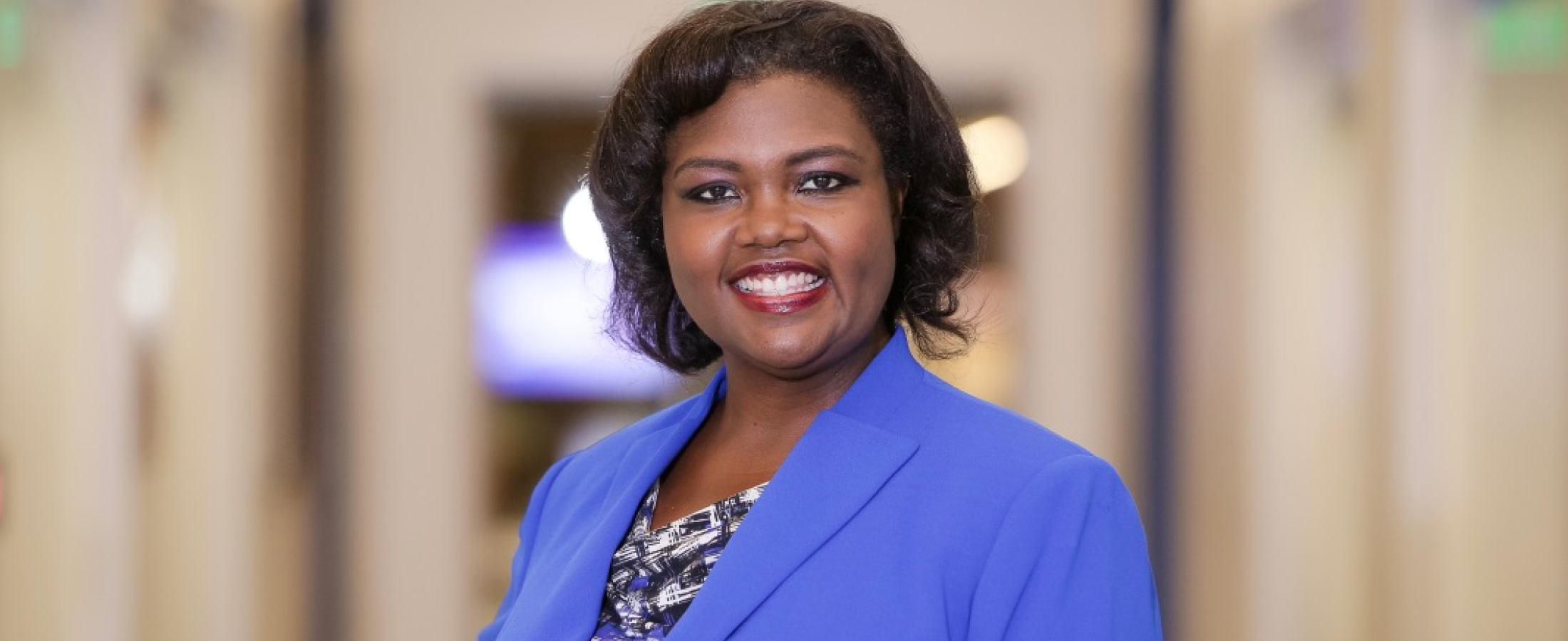

For as long as she can remember, Dr. Shaneeta Johnson has been interested in health equity.
“I’ve always been involved in trying to make sure that everyone gets a fair shake, that everyone has access to good healthcare,” says Johnson, a bariatric surgeon at Morehouse School of Medicine in Atlanta.
She is also an avid proponent of robotic surgery. “From the first time I was introduced to it, I just loved it,” she says. “It seemed so natural to me, that approach.” Johnson, who oversees robotic and minimally invasive surgery at Morehouse, says she performs 99% of her procedures with the Intuitive da Vinci system. She has been using it for more than a decade, and teaching trainees since 2016.
So, it’s not surprising that Johnson has combined these two interests. When she came to Morehouse, she saw an opportunity to make an impact in both areas. She had a vision for how to develop Morehouse’s robotic surgery program. At the time, the school had no program, and only three surgeons there were performing surgeries on the da Vinci system.
When she started at Morehouse, she approached Intuitive about working together to expand da Vinci robotic surgery at Morehouse. She had already seen what Intuitive could do; the company had been helpful in developing robotic and educational programs at other institutions where she had worked and trained.
Johnson says Intuitive has been crucial to the program’s success. As part of its larger commitment to both robotic surgery and health equity, the company has provided funding and advice to help Johnson and her colleagues develop surgical training programs for the hospital and the two schools. The company also assisted with training for surgeons and staff, and with setting up the logistics and infrastructure to ensure the program’s long-term success. Johnson also used Genesis, an Intuitive program that evaluates the efficiency of a hospital’s robotic surgical operations. “The partnership has been vital,” she says. “This would not have been possible without Intuitive.”
For many procedures, da Vinci robotic systems can help reduce complications, improve outcomes, and help shorten the length of hospital stay, compared to open surgery. So far, Johnson says, increasing the use of robotic surgery has “saved the hospital a significant amount of money due to reduced length of stay.”
The effort extends beyond patient care; with help from Intuitive, Johnson and her colleagues have implemented a rigorous training program. Every Morehouse surgical resident now graduates fully trained and certified in robotic surgery. Hundreds of surgeons have received training, and many of them are now practicing robotic surgery. The majority of Morehouse medical students are from historically marginalized communities; research has found that doctors from these groups often choose to work in underserved communities. As a result, Johnson says, training more Morehouse residents and medical students in robotic surgery will lead to an expansion of health equity in more communities.
The journey has had its share of obstacles. At first, some surgeons and leaders were skeptical of the value of robotic surgery, while others questioned the initial investment costs. “There was significant pushback,” Johnson says.
To persuade the doubters, she relied on data, both clinical and financial. Once she received approval, she worked hard to ensure success. “I was adamant that this should be a program, not just a piece of equipment,” she says. Johnson set up a large multidisciplinary and multi-institutional steering committee with representatives from all stakeholder groups, including C-suite, surgeons, clinical teams, administrators, and trainees.
And as soon as the program launched, she and her colleagues began collecting more data. “That was extremely important,” she says. “We knew we needed to show what we were accomplishing.”
Johnson now has her sights set on larger goals. She wants to significantly expand the ranks of surgeons and trainees who receive robotic instruction. She is also receiving requests for help from other urban institutions interested in replicating her approach.
“Everyone should have access to this kind of care,” she says. “It’s possible to do it, we just have to make it happen.”
Look for more Intuitive stories on leadership, problem-solving, and impact at the point of possibility™.
Important safety information
Patients should talk to their doctor to decide if surgery with a da Vinci system is right for them. Patients and doctors should review all available information on nonsurgical and surgical options and associated risks in order to make an informed decision.
Serious complications may occur in any surgery, including surgery with a da Vinci system, up to and including death. Serious risks include, but are not limited to, injury to tissues and organs and conversion to other surgical techniques which could result in a longer operative time and/or increased complications.
For important safety information, including surgical risks and considerations, please also refer to www.intuitive.com/safety. For a product’s intended use and/or indications for use, risks, full cautions and warnings, please refer to the associated user manual(s).
Individuals’ outcomes may depend on a number of factors—including but not limited to—patient characteristics, disease characteristics, and/or surgeon experience.